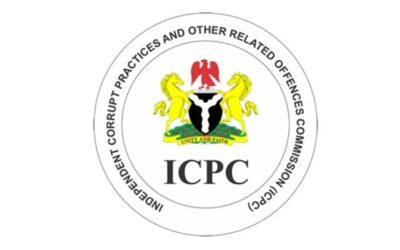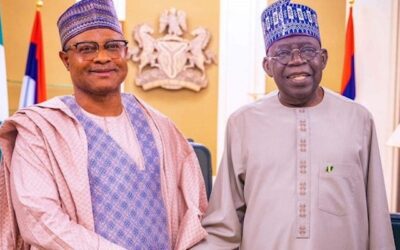Sudan And Its Many Coups

The interregnums in Sudan are offshoots of the divisiveness in the polity of the country, and why won’t the military cash in on the inordinate ambitions of the political class?
***
When General Burhan, Head of the Sudanese power-sharing council instituted to form a perfunctory power broking system (between the military and political class), on the pretext that his country was committed to a truly democratic dispensation, the world thought the days of cataclysmic government of the Northeastern country are over. However, the recent upsurge by the military occasioned by a coup d’etat opens the unhealed wounds of the time President Omar al-Bashir was overthrown in 2019.
It will be recalled that a deal was reached and signed by The Military Council (TMC) and the civilian protesters were solely represented by the Forces of Freedom and Change (FFC) shortly after the then President, President Omar al-Bashir was overthrown in 2019. The pact between the TMC and FFC of July 5 through July 17, 2019 was made in order to set in motion the required procedures in maintaining calm within Sudan’s ruling sphere.
According to the agreement unanimously reached by the TMC and the FFC, power would be rotated between the Executive and Legislative arms of government. It was also agreed that a judicial panel of investigation be set up to look into the post-coup outcomes of 2019 as well as a reconnoitering of the gory Khartoum massacre with a caveat of elections to be held in mid-2022.
Meanwhile, the military will rule the country and thereafter return to a civilian rule. To further establish this pact, the opposition, Ahmed Rabie and General Mohamed Hamdan Daglo of the TMC signed the statutory Constitutional Declaration which included six civilians and five military officials to lead the Sudanese government.
Contrary to Burhan’s promise that Sudanese would be going to the polls come 2023 to exercise their civic right to elect their new president, the recent coup of October 25, 2021 threw spanner in the works of achieving this dream.
Prior to the coup of October 2021, an attempted coup had taken place in September 2021, and the international comity saw this as a move to undo the initial process of a proper take-over of power in the North-Eastern African country.
In the wake of the coup, Sudanese security operatives were reported to have shot live rounds of bullets and tear gas canisters at the protesting hordes of pro-democracy protesters who had marched the streets of the capital city of Khartoum advocating the reinstatement of ousted Prime Minister Abdullah Hamdok.
Read Also: The Resurgence of Coups: A Worrisome Trend in West Africa
According to reports, it was alleged that no fewer than 140 people were injured and about seven people killed in the process, but the allegation had been refuted by the Ministry of Interior.
In a statement, the coup leader, General Abdel Fattah Burhan, said that the military takeover was necessitated by the need to forestall an impending civil war, and to quell the ongoing political unrest in the country. He insisted, however, that the planned July 2023 general election would still hold as scheduled.
Sudan, a country seceded by South Sudan in 2011 has since been one of the hotbeds of political unrest in Africa. The country experienced its first military coup in 1985 when the then Defence Minister and Armed Forces Commander-in-Chief, Field Marshal Abdel Rahman Swar al-Dahab, unseated President Gaafar Nimeiry. The infamous coup led by General Burhan adds to the incongruous list.
Despite the secession and the sharp decline in its Gross Domestic Product (GDP), the Sudanese nation is yet to find its feet among the comity of nations. Grappling with economic throes and bedeviling political circumstances such as the October 2021 coup, the nation risks international sanctions on issues bordering majorly on human rights.
The United Nations, the World Bank and other major stakeholders within the palatial global space, have expressed worries about the sudden takeover of power by the military, and sanctioned Sudan in the same light.
The TMC and FFC are partly responsible for the harsh political state of Sudan. For instance, instead of the civilian power brokers to rescue the nation from its economic throes, they are rather engaging in power struggles, egoistic positioning in retaining their places within the corridors of power.
On the part of the military government, it seems that the Jack and Boots officers would rather extend their stay at the Seat of power longer than expected as every handwriting on the wall all points at no serious move to return power to civilian rule. From the beginning of the negotiation, the military had ingratiated itself into the transition process of handing power to the Sovereign Council which further caused an unsettling silence in the body polity. True to the fears of the citizenry, the attempted coup in September 2021 and eventual coup d’etat cleared any doubts about the intents of the military government.
Consequently, the military heaped blames on the civilian leadership for derailing the economic fortunes of the nation. While the incumbent military government tried to recoup the loots of the Al-Bashir led-government as well as ensuring that the ex-president faces criminal charges at the International Criminal Court, pundits see it as an attempt as witch-hunt and not one that profits the general interest of the country.
Sudan does not only risk international sanctions both economically and politically, the state of the Sudanese economy is at a fragile brink. If bilateral and multilateral trade relations of Sudan and other foreign partners is not protected in this miasmic mix, then the centre of the trading existence may no longer hold for long before it falls apart. It would take more than just kneading the battered sinews of Sudan’s economic life, the security frame of the country have to be properly instituted and put in right perspective to regain the trust of big-time partners of the country.
Read Also: COVID-19 Vaccination Skepticism: Is The Recent Death Toll In Russia Not Enough To Teach Us Lessons?
If Sudan must rise up from the biting dust in the face of its common existence, the agreed transition process before the October coup, which will see the country return to its glorious democratic days must be re-enacted, established by the constitution.
Also, the African Union (AU) must see to the compliance to dialogue between the civilian power brokers in the country. They must as a matter of continental urgently ensure that military takeovers such as the Sudanese scenario is disallowed in other parts of the continent.
Inasmuch as the AU is trying its best through policies among member states to annihilate the nightmarish coup and counter-coup overtures, Sudan like the proverbial ‘Abiku’ in (J.P Clark’s poem, Abiku) is that child that keeps dying and returning just to hunt the mother, in this case, Africa.
Since the authoritarian years of former President Al-Bashir who seized power in 1989 through his so-called Salvation Revolution to the eventual fall of his government in 2011 after public outcry on his many sins of corruption and abuse of power, Sudan has been facing one of its most trying times as a nation since the secession of South Sudan.
The recent coup has recieved international condemnation with analysts across the global spectrum calling for an eventual return to civilian but the big question remains: Would Sudan not return to its vomit after being saved from the clutches of hellish military intervention?


